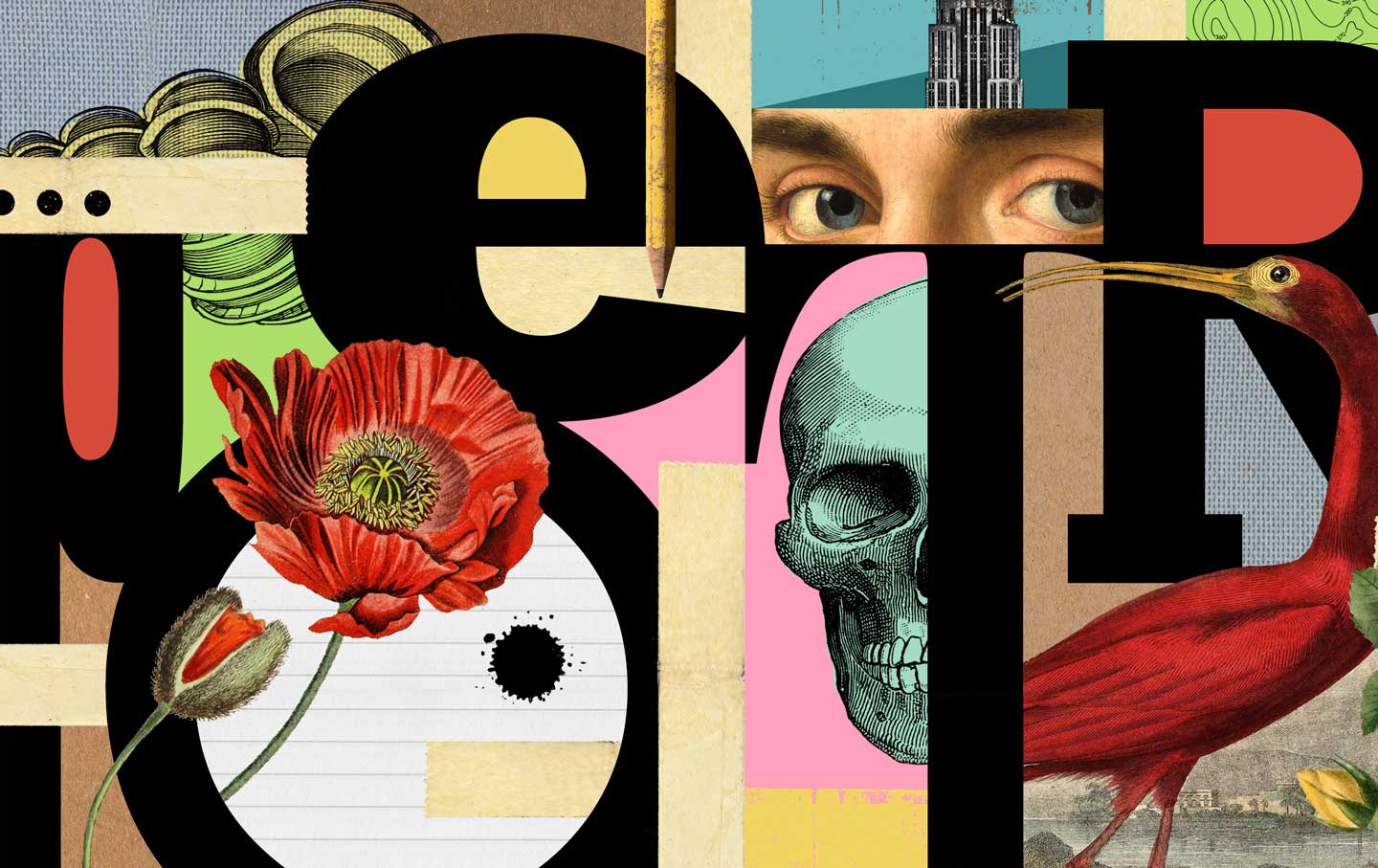The Sheer Gusto of Jane DeLynn
1982’s In Thrall was a magnificent piece of queer fiction, at once comic and courageous.
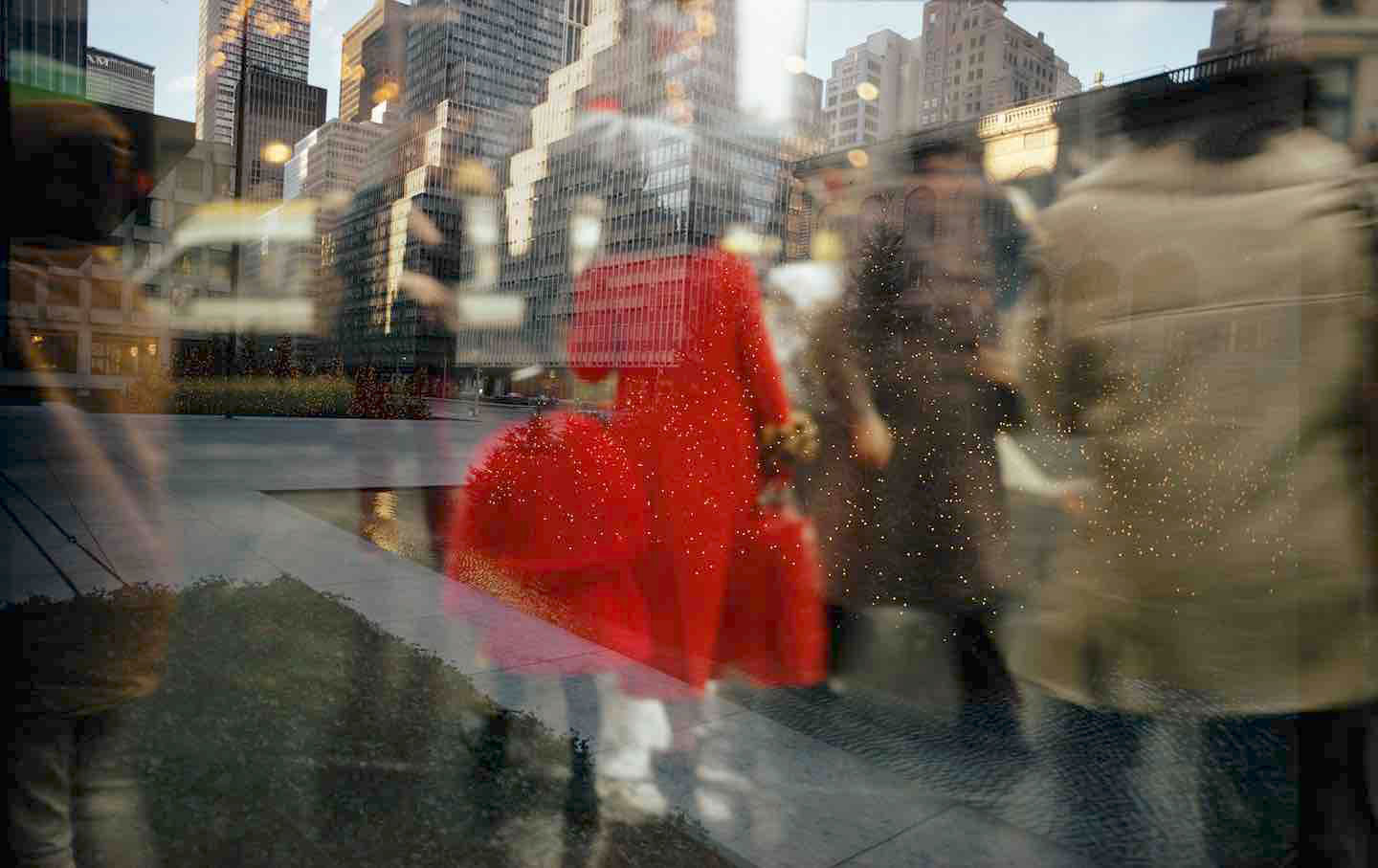
Fiction about young girls has often been in thrall to silence, secrecy, and evasion. In Jane Austen’s Mansfield Park, for example, young Fanny Price moves on tiptoe, daring anyone to notice her. Instead, all the noticing is done by her. Her duty is not merely to stay in the shadows but also to remain quietly pleasant and accommodating. So, too, the young Catherine Sloper in Henry James’s Washington Square shares her feelings with no one, and thus her feelings deepen. She is at her most interesting when she is at her most silent and withdrawn.
In 1952, in the third chapter of Patricia Highsmith’s novel The Price of Salt, there is a sudden jolt, a kind of shock. From now on it is clear that Therese, the 19-year-old shop assistant, is lesbian. This is established not because of what she says, or even because of what she thinks. Rather, it is done by her eyes. We learn about her because of how she returns the gaze when one of the customers, a woman called Carol, gazes at her. The woman’s “eyes were gray, colorless, yet dominant as light or fire, and caught by them, Therese could not look away.”
In scene after scene between the two women, hardly anything is said. They go to a restaurant, but “they did not bother to talk on the way.” It takes two drinks for Therese to use her voice as much as she is using her eyes. And then she manages to move from the most inconsequential chatter to “I think you are magnificent,” with nothing in between.
Still the looking intensifies, even as little more gets said. In Carol’s house: “Then for a long moment, they looked at each other, Carol standing in the doorway and Therese at the table, looking over her shoulder, not eating.”
In Muriel Spark’s The Prime of Miss Jean Brodie, published a decade later, the schoolgirls, known as the Brodie set, are almost ready to speak, are on the verge of saying aloud the strange and lonely thoughts that are lurking in their minds. They are, after all, the novel tells us, “vastly informed on a lot of subjects irrelevant to the authorized curriculum.” But they hold back. They don’t blurt out what is truly on their minds.
When Miss Brodie, their teacher, invites them to supper, Eunice Gardiner will do somersaults on the mat while her fellow students “were washing up and licking honey from the depleted comb off their fingers.” But they don’t speak of love or lust or lesbian feelings.
When one of the girls, Jenny, is accosted by a man “joyfully exposing himself near the Water of Leith,” there is a rumor—this is the 1930s—that a policewoman has been called to question the victim. This excites Sandy, another of the girls, who forthwith “fell in love with the unseen policewoman who had questioned Jenny.”
For the unschooled reader, this might read like a caprice, a throwaway line, an example of how very silly this Sandy is. But for other readers it is a sign; it helps make clear why these girls have gathered so devotedly around Miss Jean Brodie. The reader is left to complete the picture.
In Jane DeLynn’s masterpiece In Thrall, published in 1982, 20 years after The Prime of Miss Jean Brodie, the protagonist Lynn is young and smart and well-informed and lesbian. She writes in the first person. She is all voice and confidence and style and knowingness. Since she has the hots for her high school teacher Miss Maxfeld, she seems, at first, not to care much who, among her friends, knows about this. She doesn’t do evasion except with her parents and her boyfriend. Perhaps more important, she doesn’t bother with sweetness. She is mean when she needs to be to anyone around her, even to herself.
Some of the energy and the sheer gusto in Lynn’s voice comes from the novelty of her frankness, her eagerness to explore matters on which generations of novelists have been evasive or silent or merely suggestive. Lynn is in thrall to the pleasure of spilling the beans on her own desire.
Or so it seems. But the story of Lynn’s lack of coyness is underscored by her need, often hidden, sometimes desperate, to be seen and understood. Her wit and sharpness, her ways of telling it like it is, are essential elements in her self-invention, but they are also forms of self-disguise and deflection.
She is both afraid and fearless, both emotionally cold and desperately needy. If In Thrall is a profile in courage and pure, willful sense and sensibility, it is also a story about Lynn’s very openness awaiting its deliverance in the form of a strange, charming cosmopolitan uncle only too ready to beguile and then betray.
In between the high drama of Lynn’s easy and uneasy lesbianism and the displays of her well-stocked mind and her darting assertiveness, there are other, more minor dramas that Jane DeLynn handles with flawless comic timing. Should Lynn’s aunt really spend money on upholstery, for example, or should she try to dress properly? Is Miss Maxfeld’s apartment shabby or is it an example of someone striving to be fashionable?
These might seem like small matters until they appear in perfectly modulated dialogue and coded argument, in scenes that carry enormous dramatic weight. They suggest not merely a time and a place—Jewish New York in the 1960s—but they offer the reader a stark version of what Lynn, often at a loss in these arguments, has to do battle with.
In the meantime, there is sex. In The Prime of Miss Jean Brodie, one of the girls thinks that “if people take their clothes off in front of each other…it is so rude, they are bound to be put off their passion for a moment.”
In In Thrall, however, times have moved on. Carol, one of Lynn’s friends, when confronted with the assertion that “teachers like to fuck,” responds: “I just can’t imagine a teacher getting fingered. It seems so undignified.”
The scene between Lynn and her boyfriend Wolf in a cinema as he tries to fondle her and unloosen some of her clothes is a classic of its kind. When she feels tears against her cheek, she thinks that Wolf has been moved by the content of the film. “For a moment I wondered whether I had underestimated him. Then he pulled away, and I realized the moisture was snot, not tears.”
Lynn is as moody and self-conscious and generally unstable as Hamlet in the play that is on her curriculum. When asked by Miss Maxfeld to write an essay on the theme of the tragic hero, Lynn chooses herself as the subject and begins: “I am a tragic hero because of my tragic flaw—an excess of intelligence that dooms me to unhappiness.” Miss Maxfeld threatens to give her an F grade for the essay.
Lynn offers Miss Maxfeld’s class her own theories on Hamlet— “probably he would have killed Claudius right off the bat if his father didn’t tell him he had to.” Hamlet, she adds, is “at his sexual peak. Yet he’s so messed up he can’t even bring himself to have premarital intercourse with his girlfriend—though who knows what he did when he was studying in Wittenberg—it’s a classic case of the virgin-whore syndrome.”
Lynn has her hopes pinned on her own version of Wittenberg. Radcliffe is where she wishes to confront her destiny. “Radcliffe,” her mother explains to her aunt, “is a very competitive place, and they don’t like to take too many girls from New York City.” Her mother is speaking in code, as Lynn makes clear in a pithy interjection: “There’s a Jewish quota.”
Miss Maxfeld invites Lynn, and Lynn alone, to tea. In these scenes Jane DeLynn displays not only an exquisite sense of timing and control, but manages to put Miss Maxfeld’s queer anxieties on full display, turning the focus away from Lynn without making this obvious or losing the mixture of dramatic intensity and comic brilliance that she has created.
Popular
“swipe left below to view more authors”Swipe →In The Price of Salt, when Carol asks Therese how old she is, Therese replies: “Nineteen.” And then Therese muses: “How old it sounded. Older than ninety-one.” In In Thrall, Miss Maxfeld says to our young heroine: “You’ve often told me, in your melodramatic fashion, that you were the oldest sixteen-year-old who ever lived.” It is a sign of Jane DeLynn’s genius that she can make this idea richly funny, fully credible and then slowly infused with coiled and dark emotion, with subtle and sharp displays of a young or not-so-young lesbian’s edginess and her vulnerability in a time when love could just about speak its name, but a time before everyone was listening.
More from The Nation
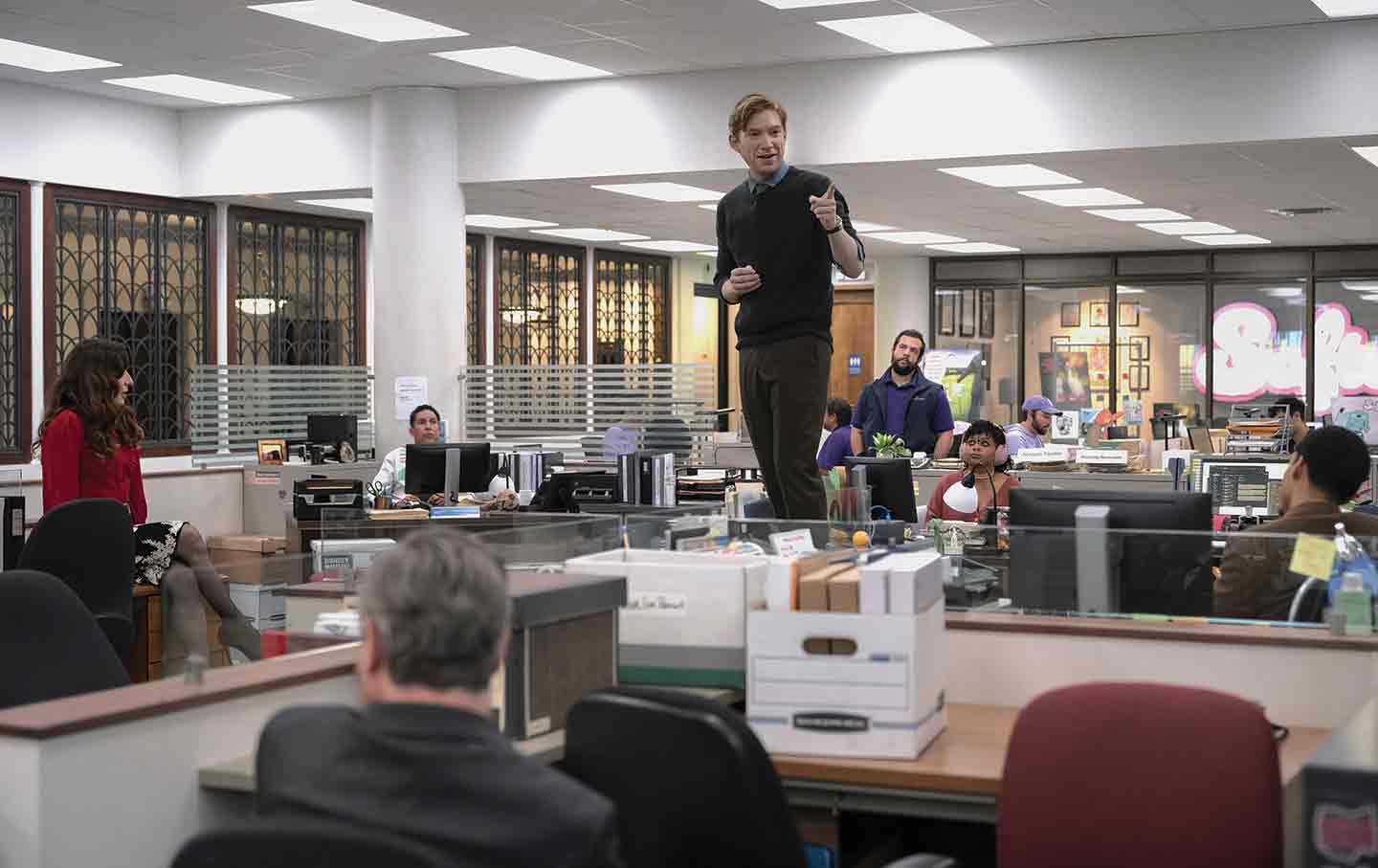
“The Paper” and the Return of the Cubicle Comedy “The Paper” and the Return of the Cubicle Comedy
The new show from the creators of The Office reminds us that their comedic style does now work in every “workplace in the world.”
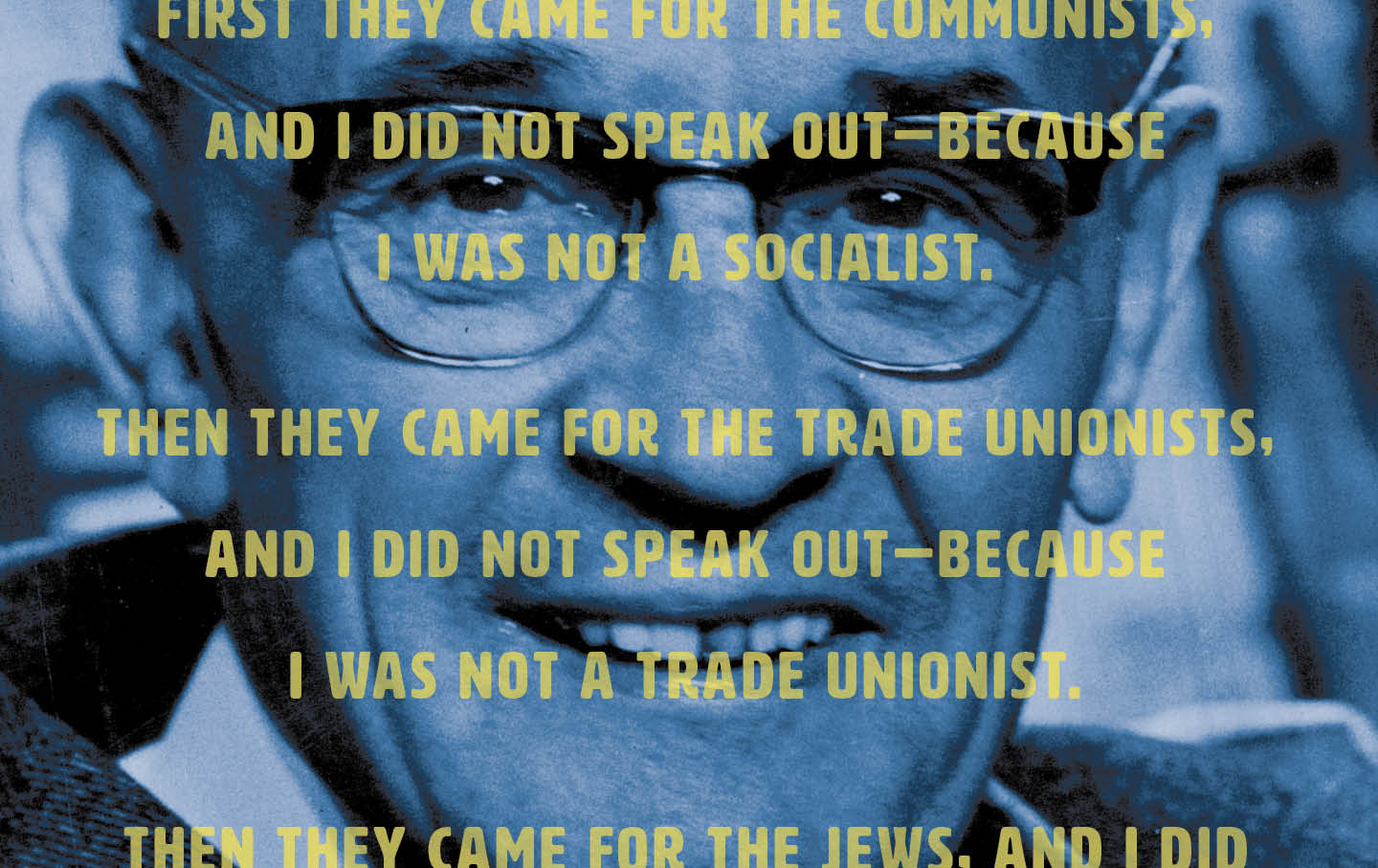
The Strange Story of the Famed Anti-Fascist Lament “First They Came…” The Strange Story of the Famed Anti-Fascist Lament “First They Came…”
In his celebrated mea culpa, the German pastor Martin Niemöller blamed his failure to speak out against the Nazis on indifference. Was that the whole reason?

The Grand Delusions of “Marty Supreme” The Grand Delusions of “Marty Supreme”
Josh Safdie’s first solo effort, an antic sports movie, revels in a darker side of the American dream.
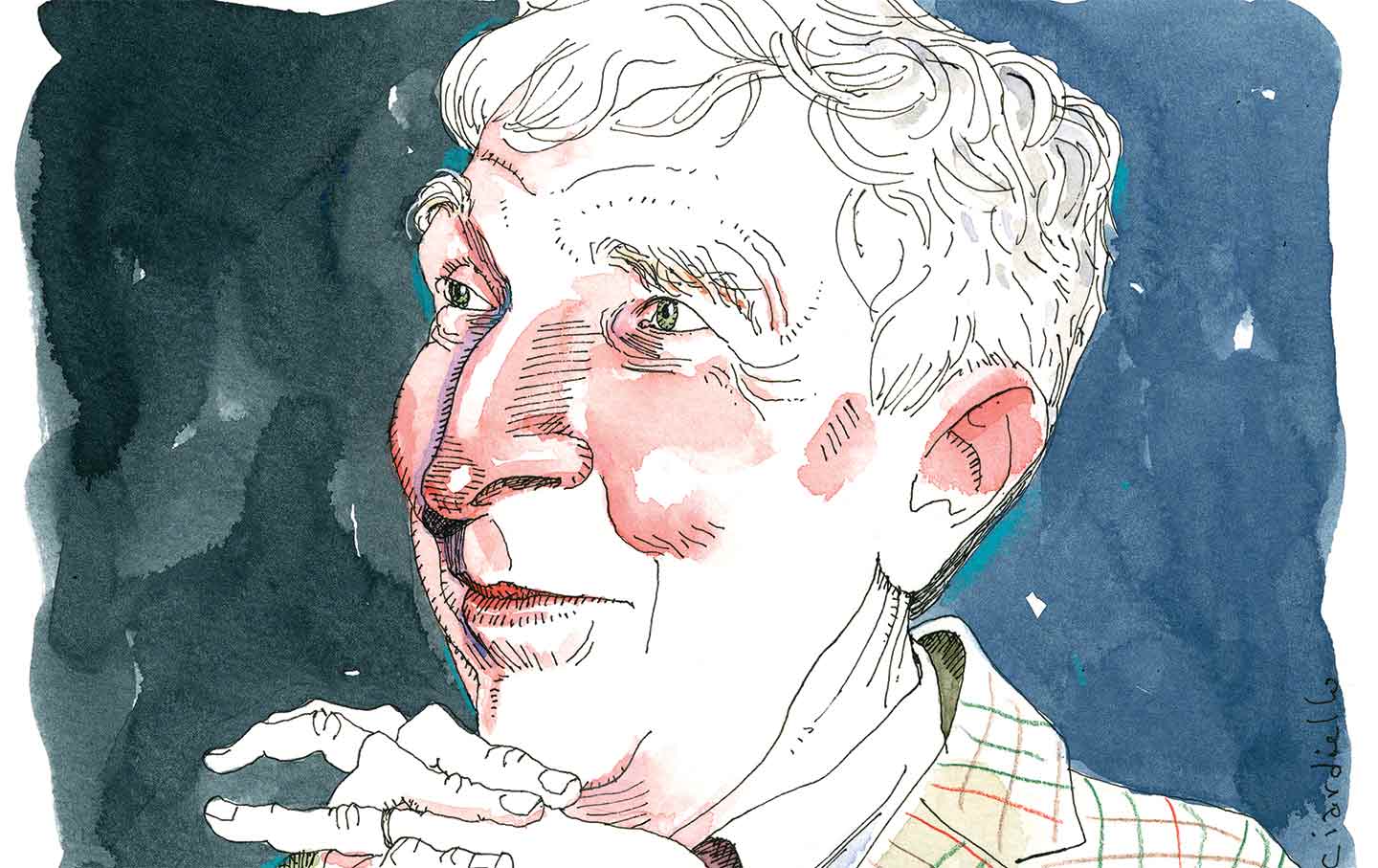
John Updike, Letter Writer John Updike, Letter Writer
A brilliant prose stylist, confident, amiable, and wonderfully lucid when talking about other people’s problems, Updike rarely confessed or confronted his own.
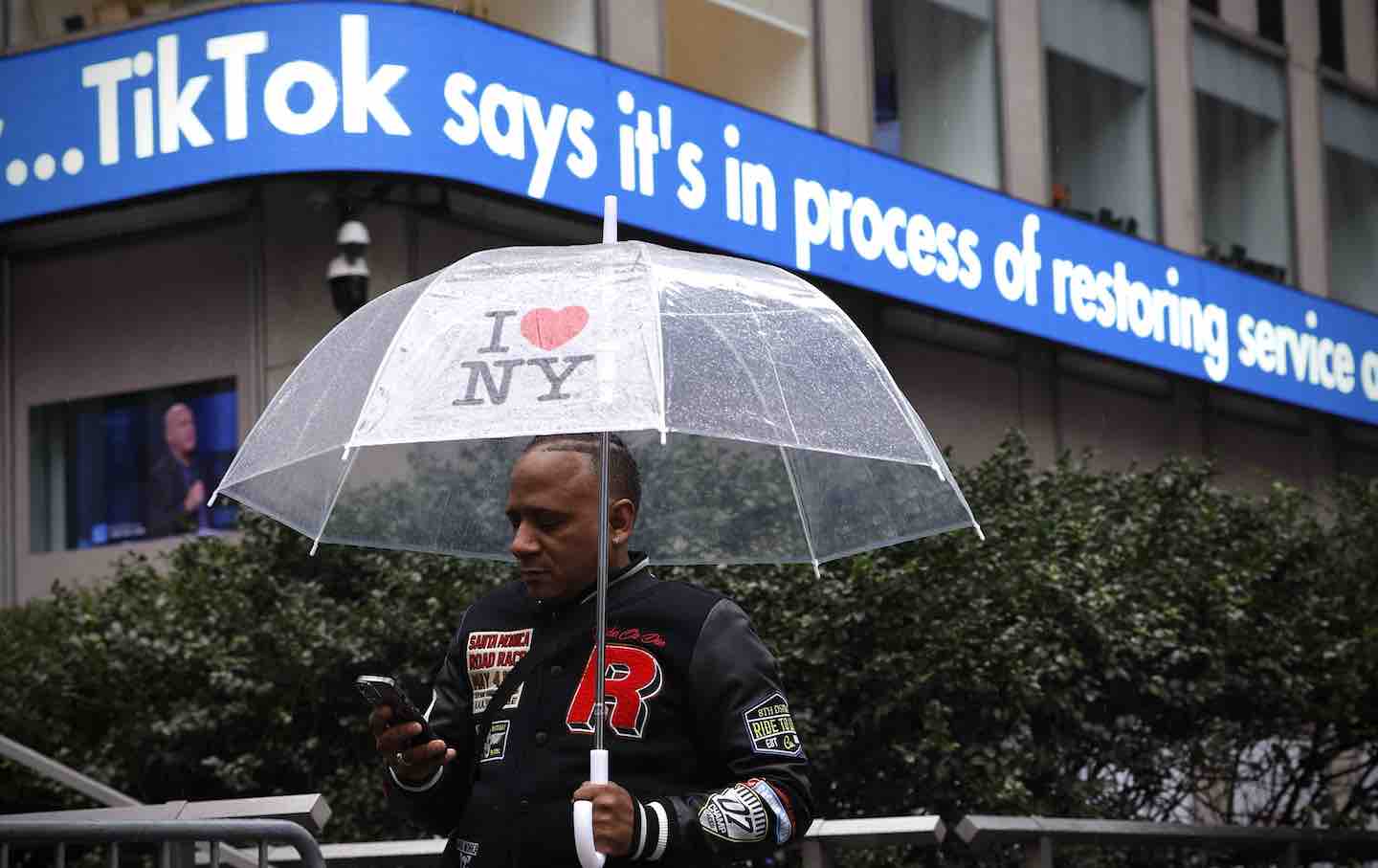
TikTok’s Incomplete Story TikTok’s Incomplete Story
The company has transformed the very nature of social media, and in the process it has mutated as well—from tech unicorn to geopolitical chesspiece.

